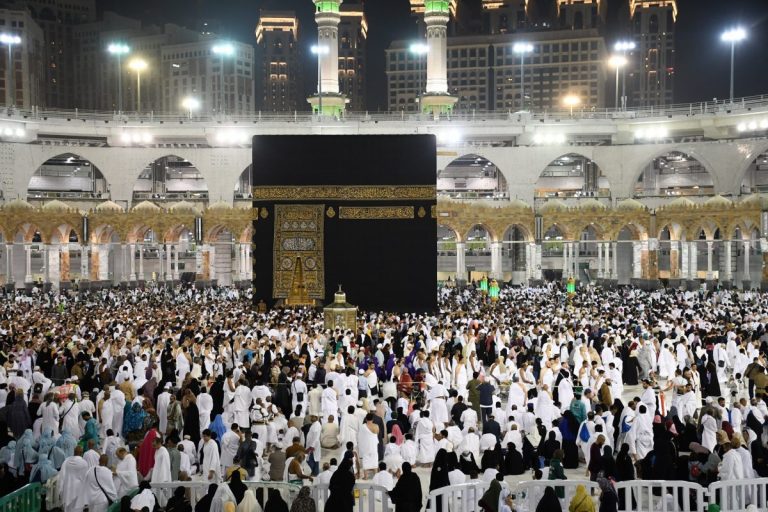Observing the first Ten days and nights of Dhul-Hijjah
Learn Quran Academy Blog


Allah Subhan Wa Taala gives us a great many opportunities throughout the year to get more and more blessings from Him. Most Muslims know about the blessings of the last 10 days (and nights) but not everyone is aware of the fact that the first ten days of the last month of the Islamic month, Dhul Hijjah, are equally packed with blessings. Allah SWT says in Quran:
“By the dawn; By the 10 nights” [al-Fajr 89:1-2].
According to most of Islamic scholars these ayahs refer to the first ten nights of Dhul-Hijjah. This opinion is also validated by Ibn Katheer as he states:
“This is the correct opinion.” [Tafseer Ibn Katheer, 8/413]
Ibn e Abbass narrates the Hadiths of Rasul Allah S.A.W as:
“No good deeds done on other days are superior to those done on these days [meaning the ten days of Dhul-Hijjah].”

Some of the good deeds recommended in these 10 days are:
Hafsah reported,
“There are five things that the Messenger (saws) never abandoned: fasting the day of ‘Ashurah, fasting the [first] 10 [days of Dhul-Hijjah], fasting 3 days of every month and praying two rak’aah before the dawn prayer.” [Related by Ahmad and an-Nasa’i]
Abu Hurairah relates that the Messenger of Allah (saws) said,
“There are no days more loved to Allah for you to worship Him therein than the ten days of Dhul Hijja. Fasting any day during it is equivalent to fasting one year and to offer salatul tahajjud (late-night prayer) during one of its nights is like performing the late night prayer on the night of power. [i.e., Lailatul Qadr].” [Related by at-Tirmidhi, Ibn Majah, and al-Baihaqi]
The Prophet (SAWS) direct Muslims to recite a lot of Tasbeeh (“Subhan-Allah”), Tahmeed (“Al-hamdu Lillaah”), and Takbeer (“Allaahu akbar”) during this time. Hazrat Abdullaah ibn ‘Umar (R.A) reported that the Prophet (SAWS) said:
“There are no days greater in the sight of Allah and in which righteous deeds are more beloved to Him than these ten days, so during this time recite a great deal of Tahleel (“La ilaaha ill-Allah”), Takbeer and Tahmeed.” (Reported by Ahmad, 7/224; Ahmad Shaakir stated that it is saheeh).
Those Muslims who are not attending Hajj this year should fast on the day of Arafah because it is highly recommended and it is confirmed Sunnah for those who are not able to attend Hajj. Abu Qatadah (R.A) narrated that the Prophet Mohammed Peace be upon was asked about fasting on the day of ‘Arafah and he said:
“It expiates for the past and coming years.” Narrated by Muslim (1162).
There is another similar hadith reported:
“I ask Allah that it may expiate for (the sins of) the year that comes before it and the year that comes after it.”
Ibn Qudaamah (RTA) said in al-Mughni (4/443),:
“It is a great and noble day, and a blessed festival which is of great virtue. It is narrated in saheeh reports from the Prophet (peace and blessings of Allah be upon him) that fasting it is expiation for two years.”
When Sheikh Ibn ‘Uthaymeen (RTA) was asked about the ruling of fasting on the day of Arfah for non-pilgrims and pilgrims? He replied:
“Fasting on the day of ‘Arafah for non-pilgrims is a confirmed Sunnah. The Messenger of Allah (peace and blessings of Allah be upon him) was asked about fasting on the day of ‘Arafah and he said: “I ask Allah that it may expiate for (the sins of) the year that comes before it and the year that comes after it.” According to another report he said: “It expiates for the past and coming years.”
As for the pilgrim, it is not Sunnah for him to fast on the day of ‘Arafah, because the Prophet (peace and blessings of Allah be upon him) did not fast on the day of ‘Arafah during the Farewell Pilgrimage. In Saheeh al-Bukhaari it is narrated from Maymoonah (may Allah be pleased with her) that the people were not sure whether the Prophet (peace and blessings of Allah be upon him) was fasting on the day of ‘Arafah, so she sent him some milk when he was standing in ‘Arafah, and he drank it whilst the people were looking on. End quote.
Majmoo’ Fataawa Ibn ‘Uthaymeen (part 20, question no. 404)
So, as Muslims, we should welcome the first ten days of Dhul Hijjah with the same fervor and enthusiasm as we welcome the last ten days of Ramadan or any other blessed days in Islam. Let’s make the most of it.
Source: www.islam-qa.com`q

You can try our Free Trial Session, No Obligation Lessons to Evaluate our Quran Reading Service & Teachers, After the free lessons you can decide to continue or discontinue Learn Quran Online with us.!
Start Free Trial Now